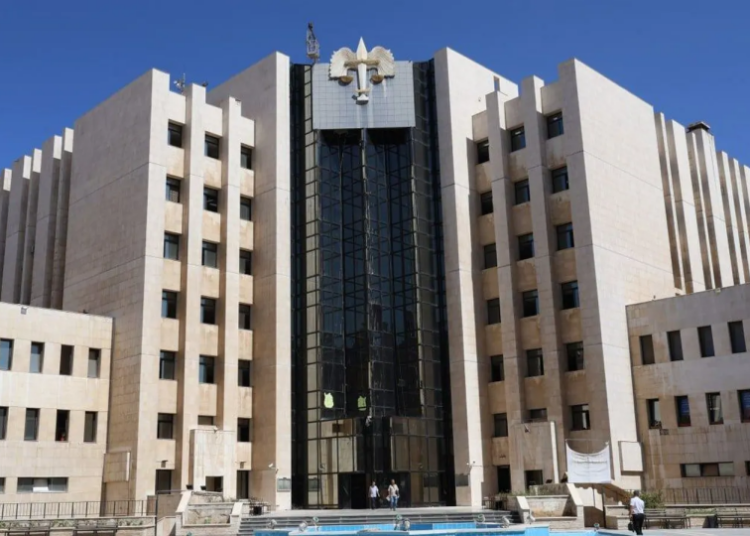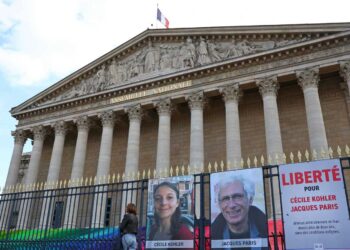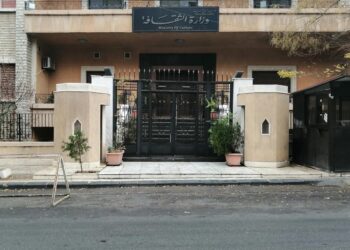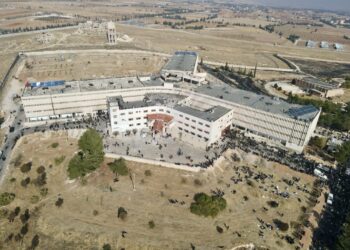Fadel Abdulghany
The distinction between criminal investigation and trial represents one of the most important structural divisions in contemporary criminal justice systems; it is a dividing line with profound legal, procedural, and human rights implications that go far beyond the requirements of administrative convenience.
This contrast between a secret investigation phase devoted to gathering evidence and a public, adversarial trial forms the basis upon which fair trial guarantees are based.
However, this limit is increasingly eroded by the practice of broadcasting investigative proceedings, a phenomenon that transforms what should remain a confidential judicial process into a public spectacle, causing irreversible damage to the set of fundamental guarantees of a fair trial recognized in various international legal frameworks.
Confidentiality of criminal investigations as a legal necessity
Criminal investigations initially aim to determine whether there is sufficient evidence for a prosecution, a function that requires procedural safeguards different from those required at the trial stage. This stage includes collecting witness statements, securing physical evidence, seeking technical expertise, and deciding on coercive measures such as arrest, search, and seizure.
Article 14(1) of the International Covenant on Civil and Political Rights recognizes this distinction, as it allows the public to be excluded to the extent necessary where publicity would prejudice the interests of justice, recognizing that the investigation phase requires various guarantees, and that confidentiality is an essential condition for preserving the integrity of the proceedings.
The international guidelines establish three main justifications for the confidentiality of investigations, each of which reflects a critical dimension of the effectiveness of the justice system:
- First, protecting the integrity of evidence, preventing the adaptation of testimonies after selective review of information, preventing the coordination of suspects’ accounts or tampering with evidence, and preserving the credibility of the investigation process.
- Second, protecting participants by protecting witnesses, victims, and members of investigation teams from interference, retaliation, and intimidation, ensuring their safety and continued ability to cooperate with judicial authorities.
- Third, and most importantly, protect the presumption of innocence by preventing early disclosure that might influence potential judges or juries before any judicial ruling of guilt.
UNDP’s Investigation Guidelines emphasize that confidentiality is “essential to the effectiveness of the investigation process into alleged misconduct,” and extend this obligation to all categories of staff and collaborators, including investigators, management, staff, and non-staff.
This comprehensive approach reflects an understanding that the integrity of an investigation depends on maintaining the boundaries of information flow across the entire institutional structure, not just at the level of individual actors.
Public trial as a democratic guarantee
In contrast to the secret investigation phase, trials are concerned with determining guilt or innocence on the basis of indictments filed after the investigation is completed and separately from it, in accordance with the principles of publicity and equality of arms.
Publicity is an essential element of the right to a fair trial. Article 14 of the International Covenant on Civil and Political Rights and Article 6 of the European Convention on Human Rights stipulate that hearings shall be public unless specifically defined exceptions apply.
Publicity fulfills essential democratic functions that ensure the legitimacy of governance: subjecting judicial proceedings to public scrutiny, improving the quality of decisions through community oversight of the decision-making process, and enhancing public confidence in outcomes through open sessions.
The trial phase is based on the principle of equality between the parties. Evidence is subject to debate and examination by both the prosecution and the defense. Judges maintain neutrality between the parties, and reasoned judgments are issued in public sessions.
This is fundamentally different from the investigative phase, in which information flows from those subjected to it to the authorities in a confidential manner, without the full guarantees of adversarial action that characterize trial proceedings.
When investigations turn into a spectacle
Filming or broadcasting investigation sessions violates internationally recognized fair trial guarantees, causes irreparable harm, and may invalidate the proceedings entirely. The European Court of Human Rights has repeatedly ruled that early public filming of suspects to suggest guilt violates the presumption of innocence enshrined in Article 6(2) of the European Convention.
In Turyaev v. Russia, the court found a violation when a deputy prosecutor publicly described a suspect as a “murderer” before convicting him, holding that such statements “encourage the public to believe in guilt and prejudge the judicial assessment of the facts.”
Broadcasting investigative reports exacerbates these risks by showing suspects answering seemingly incriminating questions, thus priming the public and potential decision-makers to presume guilt before any judicial ruling.
The U.S. Supreme Court’s ruling in Rideau v. Louisiana sets a strong precedent on the irreparable harm caused by broadcasting confessions or investigative proceedings. The court ruled that broadcasting a videotaped confession constituted a “trial” for the accused, and that the subsequent judicial proceedings were merely “empty formalities.”
The confession was broadcast three times and viewed by 106,000 people in a parish with a population of 150,000. The court overturned the conviction without reviewing the minutes of the preliminary hearings, stating that “for the tens of thousands who saw and heard it, this was a de facto trial of Rideau,” and that any subsequent proceedings were reduced to a form without meaningful judicial substance.
EU Directive 2016/343 on the presumption of innocence also explicitly prohibits presenting suspects “as guilty through the use of physical restraint measures,” and requires states to “refrain from making public statements indicating the suspect or accused as guilty.”
Broadcasting the investigation proceedings violates both standards, producing complex violations that go beyond individual incidents and undermine the structure guaranteeing a fair trial.
Subsequent procedural corrective measures will not remedy this damage, as the public disclosure of the content of the investigation, once it occurs, will inflict an irreparable damage on the presumption of innocence, no matter how stringent the judicial instructions.
Systemic consequences and institutional failures
Broadcasting investigative proceedings undermines the integrity of the criminal justice system through a series of successive failures. “Witness contamination” occurs when potential witnesses see incomplete evidence and alter their stories, weakening the credibility of testimony and potentially excluding crucial evidence from the trial.
Broadcasting also allows suspects and accomplices to coordinate responses or destroy evidence, undermining the effectiveness of investigations and opening avenues for evading accountability. The defense now has the legitimate right to challenge distorted evidence or request a re-investigation entirely, creating procedural complications that could undermine the possibility of prosecution, regardless of conviction or acquittal.
UNDP and OIOS guidelines explicitly require investigators to maintain the confidentiality of all non-public information, and leaking or disseminating it constitutes misconduct in itself.
National codes of procedure place similar obligations on judges and prosecutors, creating potential disciplinary liability for any official who facilitates the availability of such information.
The UNODC guidelines also emphasize that witness protection requires “maintaining the confidentiality of investigations and regulating institutional communication,” standards that directly contradict the transformation of a highly sensitive stage into a public spectacle.
Institutional harm extends beyond individual cases to undermine public confidence in justice systems themselves. When investigative procedures are reduced to a public spectacle, the distinction between legitimate judicial process and media spectacle blurs, diminishing the prestige and authority necessary for effective law enforcement.
As the perception grows that publicity takes precedence over the integrity of the process, public confidence erodes, and potential witnesses are reluctant to cooperate for fear that their testimony will be published before trial.
These effects produce feedback loops that gradually weaken the efficiency of the system and ultimately undermine the rule of law itself.
Legitimate alternatives to proving detention
Authorities seeking to ensure the detention of suspects while adhering to procedures have several options at their disposal to balance transparency and fair trial guarantees without revealing the contents of the investigation.
Procedural transparency can be achieved through robust public formats: press releases confirming the arrest without delving into the evidence or characterizing guilt; a general presentation of the accusation without detailing the investigation file; confirmation that procedural safeguards are being observed without revealing the content of the investigation; and timely updates on the progress of the proceedings without detailed disclosures.
These tools serve the legitimate public interest in ensuring that action is taken in accordance with the law, while maintaining the confidentiality necessary to safeguard the integrity and effectiveness of the investigation.
Independent monitoring bodies can also verify the legality of detention and the due process of law without public disclosure of the investigation’s content. Human rights organizations, judicial oversight committees, and international observers can access necessary information under confidentiality arrangements, providing accountability mechanisms that protect both the public interest and the rights of the defense.
This approach has proven effective in multiple jurisdictions, demonstrating that transparency and confidentiality are not necessarily incompatible when the institutional balance between them is well designed.
Conclusions
The need to safeguard the line between investigation and trial goes beyond mere technical requirements to touch the very heart of democratic governance. This requires a careful balance between legitimate demands for transparency and equally legitimate needs to safeguard the integrity of proceedings, recognizing that justice delayed due to adherence to procedural rules is far more important than justice denied due to violations of due process.
In light of the growing challenges to the integrity of justice systems, adherence to this separation becomes increasingly important. The temptation to sacrifice procedural safeguards to satisfy populism or immediate political interests must be resisted. Once these boundaries erode, their restoration becomes nearly impossible.






